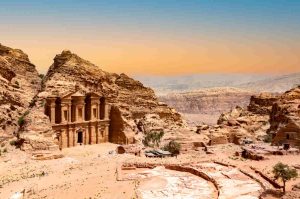Our trips can be considered a high-level culinary experience, where you can taste the gastronomy of the Middle East and the Maghreb, both in its most popular and sophisticated aspects. At Mandala Tours we know that in order to enjoy a trip of authentic quality, meals are very important. And although our tours do not always include full board (breakfast, lunch and dinner), we usually provide the main meal of the day, either at the hotel or at a trusted local restaurant.
Arabian gastronomy
Despite the use of this generic term, what is known as Arab gastronomy encompasses a wide variety of culinary traditions. But it is undeniable that all of them have features in common. For example, being conditioned by the precepts of Islam (halal food), among which the prohibition of eating certain meats or the obligatory daytime fasting during the month of Ramadan stand out.
It also stands out for being a gastronomy where staple foods such as legumes or rice, as well as vegetables and nuts are of great importance. For this reason, many of its dishes are suitable for vegetarian diners. And of course, another distinctive feature is the strong aromatization of their dishes, with a wide variety of spices that were introduced from the East due to the strategic location of these countries on the ancient trade routes to Europe.
The influence of Turkish cuisine
Another aspect that you will be able to discover if you travel with Mandala Tours is the great influence that Turkish food has on its neighbors. Of course, if you visit Turkey with us, you will be able to taste the typical dishes and food of this country. But if you visit the other countries in our catalog, especially Egypt and Jordan, you will discover that the domination exercised by the Ottoman Empire in the past has left an enormous mark on the local cuisines. In fact, many dishes are common, as well as some of its presentations and types of elaboration: roasted meat, the presence of yogurt or the intense sweetness of the pastries thanks to the syrup.
Different contributions in each territory
But while it is nice and rewarding to find the parallels between the different cuisines, it is even more interesting to enjoy the differences between them all. And the good thing is that in each of the destinations we work with, you will find singular aspects in its gastronomy that make it unique.
The greatest contrast will probably be found in IsraelThe Jewish religion, although there are striking parallels with the cuisines of their neighbors, the predominance of the Jewish religion has led to the imposition of foods and preparations linked to its precepts (kosher food), such as the prohibition of cooking on Shabbat (Saturday), which has favored the popularity of cold dishes on this day or dishes prepared by very slow cooking starting the day before (adafinas).
In Morocco, the Berber cuisine, linked above all to the population of the vast Atlas area and the desert of the south, is another interesting counterpoint to discover, with dishes linked to the nomadic culture, such as Berber pizza.
Something similar happens with the Bedouin communities, present in Jordan and in some regions of Egypt: their cuisine is marked by the availability of the products closest to hand, such as camel or goat dairy products, or dates from palm trees.
And those who want to go a step further, can delve into the proposals of fusion cuisine, which mixes local tradition with other totally different ones, especially those from the West (Europe, United States) and the East (Asian, Iranian food). Therefore, if you like to eat well and learn about the gastronomy of other peoples, do not hesitate to organize your travel package with one of the Mandala Tours agencies. You will savor every last detail of your experience!





